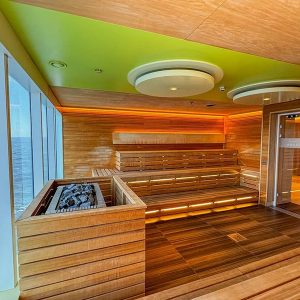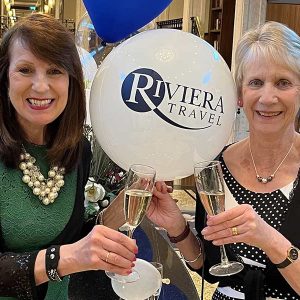The range of holiday activities available for people with disabilities has never been wider. We’ve researched far and wide to bring you some suggestions and ideas of something new to try.
Climbing
Climbing centres are now waking up to the fact disabled people would like to try out this wonderful activity. There’s also specially adapted accommodation on offer. We recommend chatting with the instructors and centre staff, in order to work out any extra help you might need. For example, using a special harness can help you to achieve more than you might expect, to have a rest break easily and to be less likely to fall. Some centres have pulley systems where wheelchair users can pull themselves up rock faces which are fantastic for the strong armed! Deaf climbers can learn a series of rope tugs that work when lip-reading or signing is impossible. Find out more.
Cycling
Many options are available such as bicycles fitted with stabilisers, tricycles which might have a supported or recumbent seat; hand cycles, where the rider is able to power the front wheel by hand, and bicycles for two, which are rather like a rickshaw with side by side cycling. Tandems, of course, are particularly suited for those with sight impairment, where the front rider, the pilot, is sighted.
Dog sledding
This really is a unique holiday experience, where you glide across the snow pulled by twelve dogs. Many alpine and Scandinavian resorts offer dog sledding, which because no particular physical strength or skill is needed, can be well suited for a wide range of disabilities. You can have a go yourself or sit in the sled and let an expert guide be in charge. Find out more.
Horse riding
This activity is very popular among disabled people, not least because it affords the opportunity to bond with the horse, and even severely disabled riders can benefit from special tuition. Side-saddle is often a really successful method of building confidence and can be suitable for those who cannot comfortably sit on a horse. There is also the option for carriage driving for those who would prefer someone beside them and for whom mounting a horse is problematic. Sessions and lessons are available across the UK before a holiday, and the RDA provide both.
Safari
Many regions offer lodges on safari with accessible and adapted rooms, and some tented camps are suitably adapted, along with specialist viewing vehicles. As always, it’s important to ensure you thoroughly discuss all your requirements with your travel company. If you need daily medication, it is vital to have more than enough with you, as rural outposts have limited European medicines. Find out more.
Sailing
The Royal Yachting Association has a fantastic Sail ability programme which aims to bring boating to people with disabilities. From over 200 clubs in the UK, you can learn to sail, using boats from access dinghies, where controls are adapted for the skipper, to tall ships. There’s the opportunity to sail solo or with a companion on access dinghies, which are specially designed not to capsize. Some clubs now have easy access concrete paths, adapted changing rooms and hoists to make getting into the boats so much easier.
If you would like to try tall ship sailing, there are cruises which can take between 5 and 30 days, even some which cross the Atlantic. Travel with the Jubilee Sailing Trust, where a buddy system operates: a disabled sailor is partnered with an able-bodied companion, so all duties are possible. Nelson and Tenacious, owned by the Jubilee Sailing Trust, are the only tall ships in the world which have been designed to enable all the crew to sail as equals, whatever their physical abilities.
Scuba diving
This is seen as hugely beneficial for those recovering from injury and is equally well suited for people with disabilities including wheelchair users, who can be teamed with a dive buddy. It’s recommended to take a trial session in the pool near home before committing to a diving holiday for the first time! Popular destinations include Tenerife and the Red Sea, where excellent facilities are available and the water is warm. Take a look at Dive Ability which is a charity that provides holidays and support for disabled divers.
Skiing
This is another sport which has come a long way in providing facilities for disabled skiers. Adaptive skiing is a broad term used to describe skiing for the disabled. Disability Snowsport UK is the charity which supports this.
You can rent skis which have been creatively adapted for use by those who use wheelchairs, have limited mobility or disabilities. Three and four track skiing is another option, where outriggers are used for extra stability and support. Bi-skis and mono-skis have seats fitted and are controlled by hand held outriggers. A trained guide can be partnered up with those who have vision or hearing impairments. With careful planning and choice of resort where these facilities are offered, there is no reason why disabled skiers cannot share the same joy of skiing as non-disabled skiers.
Skydiving
Skydiving is a totally thrilling holiday activity to take part in with a unique sensation as you literally fall from the sky. Tandem parachuting, where the passenger is in a duel harness with an instructor, has made this a real option for those with a disability. The instructor is in charge of the descent, the use and opening of the parachute and the landing. However, if it is considered to be safe, the participant may be able to steer the parachute guided by the instructor, for a part of the descent.
The British Parachute Association has produced a good fact sheet, covering points you might want to check if trying this activity overseas. A certificate of fitness must be obtained before being allowed to make a parachute jump. You will also need to discuss suitability for parachuting with the chief instructor who will have the final say as to whether the jump can take place.
Snow mobiling
This can be a great experience for those who have limited mobility as it’s an activity for which you sit down, so the snowy adventures are open to all. Check with the tour operator when booking and give details of your requirements.
For questions to ask before you book your holiday, read on.
Information and tips for your holidays whatever your physical ability, read more.
If you have any further queries, please get in touch with us at service@silvertraveladvisor.com.
The above ideas are made by way of suggestion only, and every individual will have differing requirements. Always check that your insurance covers you for any activity and that the operator has the correct licence and liability insurance in place before booking.
Silver Travel Advisor recommends Enable Holidays for those with limited mobility and slow walkers.
See also
- Questions to ask as a limited mobility traveller
- Air, Rail, Coach and Taxi services for limited mobility and accessibility requirements
- Specialist companies for those with limited mobility or accessibility requirements
- Companies and Properties around the UK which offer accessible accommodation
- Tips, ideas and useful websites for those travelling with a wheelchair, limited mobility or disability
- Useful travel sites for dementia, dialysis, oxygen, carers and general information











